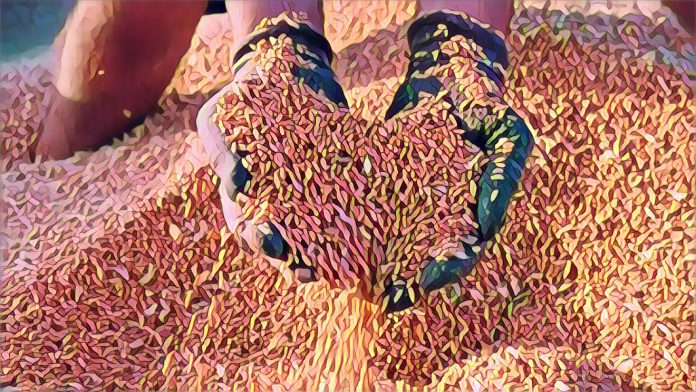Nigeria has defended its decision to accept grains from Ukraine, a country that is facing a violent conflict with pro-Russian separatists in its eastern regions.
The Information and National Orientation Minister, Alhaji Mohammed Idris, said on Tuesday that the fact that Nigeria accepted grains from Ukraine does not make Nigeria a weak or failed state.
He was speaking at the Leadership Annual Conference and Award 2023 in Abuja, where he addressed the theme “An economy in distress: The way forward”.
Idris said that many countries depend on each other for food and other resources, and that Nigeria was no exception.
“Egypt gets about 60 per cent of its grains from Ukraine. The fact that Egypt gets about 60 per cent of its grains from Ukraine does not make it a failed state,” he said.
“The fact that we are having challenges at the moment does not make Nigeria a failed state. Therefore, accepting grains from Ukraine does not make Nigeria or Egypt failed countries. It is a normal thing, because countries exist to depend on one another,” he added.
Nigeria’s Economic Challenges and Reforms
Idris acknowledged that Nigeria was facing some economic challenges and said that President Bola Tinubu was aware of them and was working hard to address them.
He said that Nigerians voted for Tinubu with the conviction that he had the capacity to turn things around for the better, and that he was doing so.
He cited some of the decisions that Tinubu had taken to improve the economy, such as the removal of fuel subsidy, the adjustment of the foreign exchange rate, and the attraction of foreign investments.
Idris said that these decisions were bold and necessary, and urged Nigerians to support the president as the country would soon begin to reap the benefits.
He also said that the government was committed to diversifying the economy, boosting the agricultural sector, creating jobs, and fighting corruption.
He said that despite the current challenges, the economic growth of Nigeria was on track and had improved significantly.
Nigeria’s Relations with Ukraine
Nigeria and Ukraine have maintained diplomatic relations since 1992, when Ukraine gained its independence from the Soviet Union. The two countries have cooperated in various fields, such as trade, education, culture, science, and technology.
In 2023, Nigeria and Ukraine signed a memorandum of understanding on the supply of grains to Nigeria, as part of the efforts to ensure food security and reduce the dependence on oil revenues.
The deal was worth $1.5 billion and involved the delivery of 1.2 million metric tons of wheat, corn, and barley to Nigeria over a period of three years.
The first shipment of 60,000 tons of wheat arrived in Nigeria in January 2024, and was distributed to various states and agencies. The deal was hailed as a win-win situation for both countries, as it would boost their bilateral trade and strengthen their friendship.
However, some critics have questioned the wisdom of importing grains from a country that is embroiled in a civil war, and have accused the government of neglecting the local farmers and the domestic production of food.
Despite the difficulties and uncertainties, both Nigeria and Ukraine have expressed their hope and determination to overcome their challenges and achieve their potential.
They have also reaffirmed their commitment to their friendship and partnership, and their willingness to support each other in their development and stability.
As the world faces unprecedented crises and changes, the cooperation and solidarity between countries like Nigeria and Ukraine can serve as an example and inspiration for others to follow.
Source: Vanguard



